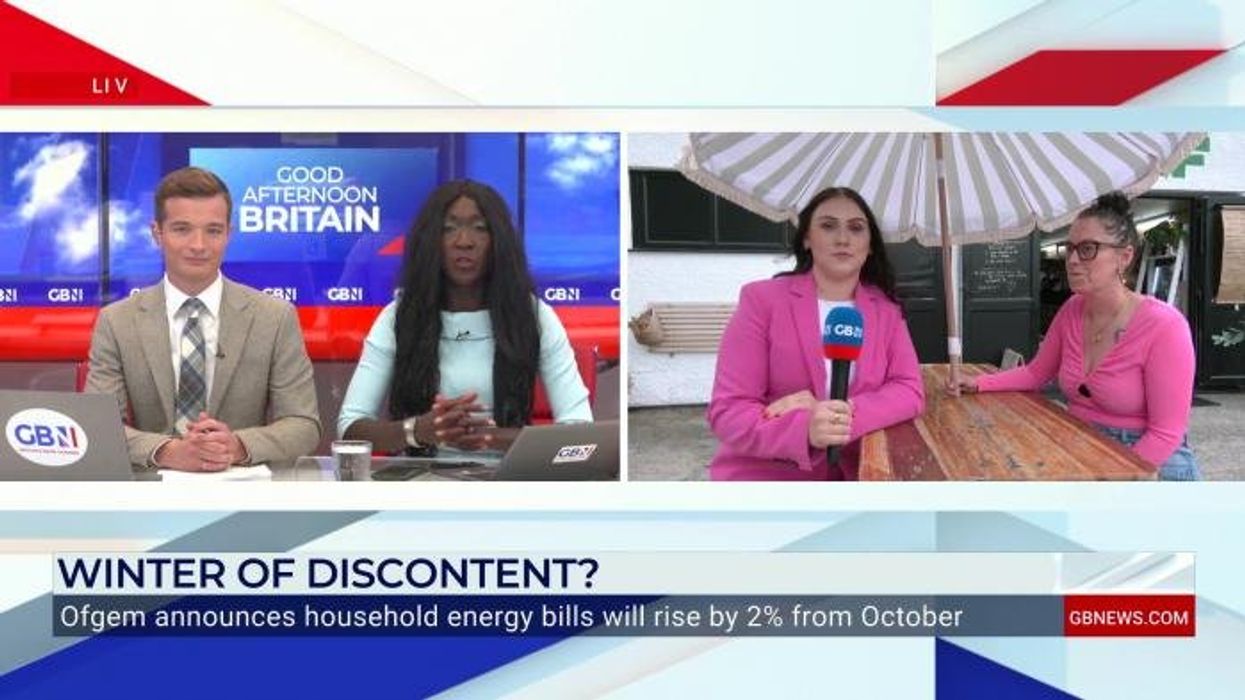Energy supplier goes BUST leaving 23,000 customers in limbo - are you affected?

The collapse affects around 15,300 households and 8,400 business customers
Don't Miss
Most Read
Energy supplier Tomato Energy has gone bust after racking up major debts and being hit with a £1.5million fine from the regulator.
The collapse has left more than 23,000 homes and businesses in limbo, with Ofgem stepping in to make sure customers' gas and electricity supplies continue as normal while a new provider is found.
The supplier, which was banned from taking on new customers in April after building up £3million in debt, filed a notice of intention to appoint administrators at the end of October.
However, no rescue deal materialised, and the company has now been forced to shut down for good.
TRENDING
Stories
Videos
Your Say

The collapse affects around 15,300 households and 8,400 business customers
| GETTYThe collapse affects around 15,300 households and 8,400 business customers, who are being urged not to switch supplier until Ofgem has appointed a new company to take over their accounts.
Rohan Churm, director for financial resilience and control, said: "I want to reassure Tomato Energy customers that they do not need to worry.
"They will not see any disruption to their energy supply, and any credit domestic customers have on their accounts remains protected under Ofgem’s rules. We are working quickly to appoint a new supplier for all existing customers, and they should not switch in the meantime.
"Once appointed, a new supplier will be in touch with further information."
Ofgem will contact affected customers directly once a new supplier has been appointed to take over Tomato Energy’s operations.
In the meantime, households will automatically be placed on a "deemed" contract, which may be more expensive than their previous deal but can be cancelled at any time without penalty.
The regulator said energy firms are now required to hold a financial safety buffer after more than 30 suppliers collapsed in under a year during the 2021 energy crisis. Since these new rules were introduced, fewer companies have gone bust.
According to reports, Tomato Energy filed a notice of intent to appoint administrators last month, giving it limited breathing space to resolve its financial crisis.
LATEST DEVELOPMENTS
 Britons are saddled with billions in energy debt | GETTY
Britons are saddled with billions in energy debt | GETTY Industry insiders say the firm owes significant debts that must be paid immediately to prevent administrators stepping in.
If the company failed to settle those debts, control would pass to administrators, who will then decide whether the business can be rescued or if it must be wound down.
Energy regulator Ofgem announced on October 13 its intention to impose a £1.5million financial penalty on Tomato Energy for failing to maintain adequate liquidity levels.
The proposed fine relates to breaches of standard licence conditions requiring suppliers to sustain sufficient funds for meeting ongoing financial obligations.
The penalty follows non-compliance with provisional orders issued in April. Ofgem stated: "We are proposing a financial penalty requiring it to pay £1,500,000.
"This is for breaching the standard licence condition that requires it to obtain and maintain liquidity at a level that enables it to pay its ongoing financial liabilities."
Jonathan Churm, a spokesperson for Ofgem, said: "We have worked hard to improve the financial resilience of suppliers in recent years, implementing a series of rules to make sure they can weather unexpected shocks.
"But like any competitive market, some companies will still fail from time to time. Our priority is making sure consumers are protected if that happens, and that any associated costs are minimised."
The supplier has amassed debts exceeding £3million, prompting creditors to consider legal proceedings for debt recovery.
The latest collapse comes after Rebel Energy went bust in April, with the supplier of last resort safety net being used to protect its 80,000 household and 10,000 business customers.
After Rebel Energy went out of business, Ofgem stepped in to make sure its 80,000 customers weren’t left without power. The regulator quickly transferred everyone to British Gas, so no one lost their supply.
Smaller energy companies often offer cheaper deals than the Big Six, but they’re also more vulnerable when market prices surge.
During the height of the energy crisis, more than 30 suppliers collapsed in under a year, leaving over two million households needing new providers. Names like Bulb, Zog Energy, Together Energy and Orbit were among those that went under.
To stop this happening again, Ofgem now requires every energy supplier to keep a financial safety buffer, helping them survive unexpected shocks. Since these new rules were introduced, fewer companies have gone bust, and customers are now better protected if one does.
More From GB News











